ELR510444 inhibits tumor growth and angiogenesis by abrogating HIF activity and disrupting microtubules in renal cell carcinoma
- PMID: 22295124
- PMCID: PMC3266297
- DOI: 10.1371/journal.pone.0031120
ELR510444 inhibits tumor growth and angiogenesis by abrogating HIF activity and disrupting microtubules in renal cell carcinoma
Abstract
Background: Hypoxia-inducible factor (HIF) is an attractive therapeutic target for renal cell carcinoma (RCC) as its high expression due to the loss of von Hippel-Lindau (VHL) promotes RCC progression. Considering this, we hypothesized that ELR510444, a novel orally available small molecule inhibitor of HIF activity, would reduce angiogenesis and possess significant activity in RCC. The mechanism of action and therapeutic efficacy of ELR510444 were investigated in in vitro and in vivo models of RCC.
Principal findings: ELR510444 decreased HIF-1α and HIF-2α levels, reduced RCC cell viability and clonogenic survival, and induced apoptosis. VHL-deficient RCC cells were more sensitive to ELR510444-mediated apoptosis and restoration of VHL promoted drug resistance. Higher concentrations of ELR51044 promoted apoptosis independently of VHL status, possibly due to the microtubule destabilizing properties of this agent. ELR510444 significantly reduced tumor burden in the 786-O and A498 RCC xenograft models. These effects were associated with increased necrosis and apoptosis and inhibition of angiogenesis.
Conclusions: ELR510444 is a promising new HIF inhibitor that reduced RCC cell viability, induced apoptosis, and diminished tumor burden in RCC xenograft models. ELR510444 also destabilized microtubules suggesting that it possesses vascular disrupting and anti-angiogenic properties. Further investigation of ELR510444 for the therapy of RCC is warranted.
Conflict of interest statement
Figures
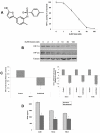
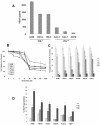
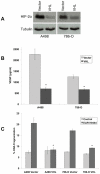
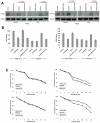
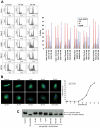
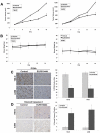
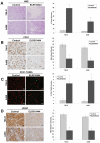
References
-
- Beasley NJ, Leek R, Alam M, Turley H, Cox GJ, et al. Hypoxia-inducible factors HIF-1alpha and HIF-2alpha in head and neck cancer: relationship to tumor biology and treatment outcome in surgically resected patients. Cancer Res. 2002;62:2493–2497. - PubMed
-
- Birner P, Schindl M, Obermair A, Plank C, Breitenecker G, et al. Overexpression of hypoxia-inducible factor 1alpha is a marker for an unfavorable prognosis in early-stage invasive cervical cancer. Cancer Res. 2000;60:4693–4696. - PubMed
-
- Bos R, Zhong H, Hanrahan CF, Mommers EC, Semenza GL, et al. Levels of hypoxia-inducible factor-1 alpha during breast carcinogenesis. J Natl Cancer Inst. 2001;93:309–314. - PubMed
Publication types
MeSH terms
Substances
Grants and funding
LinkOut - more resources
Full Text Sources
Other Literature Sources
Medical

